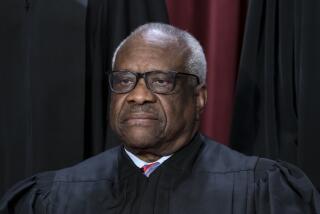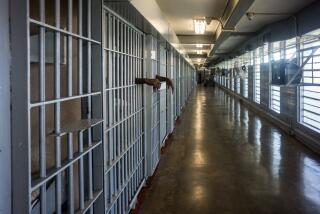Some ‘Sacred Cows’ Are Worth Rethinking : Law: The unanimous jury verdict is one requirement that might be impeding true justice.
- Share via
The unprecedented media coverage of the O.J. Simpson trial has raised a question in the mind of the public: Does our criminal justice system serve society’s best interest? Bearing in mind the system’s function, which is to seek the truth, let us look at some of the procedural safeguards and ask whether they might be modified.
* Free press versus fair trial. Excessive media coverage creates complications for both the prosecution and the defense. The pervasive publicity causes juries to be sequestered, which, according to conventional wisdom, is to the detriment of the defense. On the other hand, a nonsequestered jury being exposed to information outside the courtroom could cause reversal of a guilty verdict.
The British system might provide a solution to this problem. In Britain, the press is free to report on a crime; however, once an arrest is made, all news is suppressed, except for a sterile report of evidence admitted in court, until a verdict is returned. This blackout protects both the defendant and the prosecution and eliminates the need for sequestration of the jury.
* Admissibility of illegally obtained evidence. A violation of the rights of a criminal defendant under the Fourth Amendment to the Constitution allows the court to exclude certain otherwise admissible evidence that was illegally obtained, either without a search warrant or outside the scope of such a warrant. This rule is not in the Fourth Amendment itself, but was adopted by the Supreme Court as a remedy to deter police from violating the amendment’s “right of the people to be secure in their persons” and property.
Should evidence that establishes a defendant’s connection to a crime be excluded solely because the police followed improper procedures? On the other hand, how else do we prevent the police from flagrant incursions into private property?
Some legal writers have suggested that illegally obtained evidence should be allowed in a criminal proceeding, and the person whose rights were violated could sue for damages.
* Unanimous vote of the jury. If one or more jurors in a criminal trial refuse to vote with the others on a verdict, a retrial may be required at the expense of the community as well as the defendant. An easy answer to this dilemma may be to adopt the rule applicable to civil cases in some states, where three-quarters of the jury can agree on a verdict. This solution, however, might meet with broad disapproval from the many Americans who feel that it is better to let 10 guilty people go free than convict one innocent person.
I propose a novel alternative: Let the judge poll a “hung jury”; if only one or two voted “not guilty,” the judge could make a finding as follows: Based on the evidence introduced at trial, could a reasonable juror find reasonable doubt of the defendant’s guilt? If the answer is yes, a mistrial is declared. If the answer is no, a judgment of conviction is entered. The appellate courts would be able to review this finding as well as other grounds for reversal.
* The rule against self-incrimination. The Fifth Amendment to the Constitution is another sacred cow worth re-examination. Under the present rules, no one has to talk to or cooperate with the police investigating a crime or testify as a defendant at trial. And failure to testify is not allowed to be a factor in the jury’s determination of guilt.
Historically, the Fifth Amendment was intended to prohibit the police from obtaining confessions by force. Without increasing the powers of the police, why not provide a pre-arrest hearing before a judge who can ask the appropriate questions? If the person being questioned still invokes the right to silence, the jury may consider that fact along with the other evidence. Failure to testify, absent other evidence, would be insufficient to sustain a conviction.
With the 21st Century just around the corner, and the criminal justice system being stretched to the extreme under ever-growing--and ever more skeptical--public scrutiny, surely it is appropriate to debate how well the system is serving the community and to open the discussion for changes.


